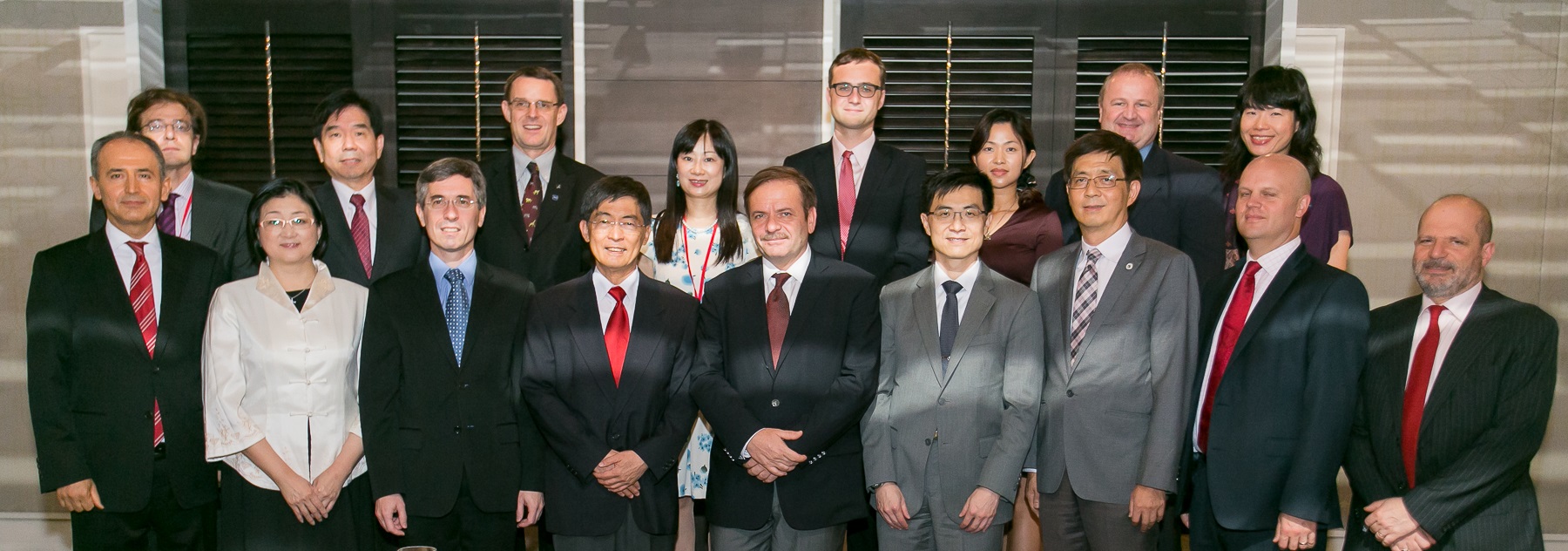European Experiences in Public-Private Partnership: the Key to Mitigate Climate Change

Venue: Residence One, Grand Hyatt TaipeiOn 26 June the ECCT's leading European corporate executives in Taiwan, environmental protection experts from Asia and Europe and local government officials enjoyed a networking luncheon titled "European Experiences in Public-Private Partnership: the Key to Mitigate Climate Change" co-organized by Environmental Protection Administration (EPA), European Chamber of Commerce Taiwan (ECCT), and European Economic and Trade Office (EETO). The luncheon was held after the 2014 Workshop on Capacity Building of Regional Carbon Market in Asia: Experiences from Europe.
The luncheon featured two keynote speeches by Mr. Erdal Elver, President and CEO of Siemens Taiwan and Dr. Joanna Lei, chairperson of Taipei GHG Infrastructure Steering Association, respectively.Emphasizing the importance of taking actions to combat global warming, Mr. Erdal Elver stated that Taiwan has a lot of potential in forging public-private partnership (PPP), especially in the aspect of the green economy. Proud of the IT industry's capability of producing technologies to help reduce energy consumption, Mr. Elver showcased three PPP examples from ECCT LCI: first the Kaohsiung City's metro system that Siemens Taiwan has cooperated with the Kaohsiung City to build a system that produces less carbon emissions. Two other PPP examples are BOSCH's eMobility solution to support the electric vehicle (EV) charging infrastructure launched in Singapore, and Siemens' London Array project collaborating with the UK government to build the world's biggest offshore windfarm, adding that the established manufacturing giant would love to work with Taiwanese government to develop a low carbon future together.
Dr. Joanna Lei, in her capacity as chairperson of Taipei GHG Infrastructure Steering Association, gave a rather refreshing talk from her sociology and anthropology background, saying that human beings were not aware of the importance of reducing greenhouse gases. While all the advances of market-based instruments are to help human beings to reach the goal of reducing GHG, she wonders whether market-driven schemes could really direct to the common goal of carbon reduction. "Are we as humans just barely using all these incentives to incentivize existing industries and economies to do low carbon emission? Or should we alternatively think about market incentives to promote a low-carbon economy instead?" she asked the audience to contemplate on the fundamental question, adding that how it starts will impact how it ends.
Citing the speedy and widespread communication revolution as an example when the public sectors offer incentives and the private sectors launch products, Dr. Lei encouraged innovation in private and public sectors with consumers in mind, as their collective power would make significant changes that incentivize a total migration to a low carbon economy.
